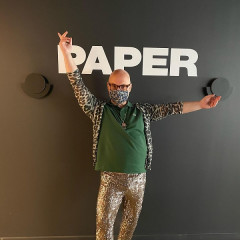 In light of the hullabaloo surrounding MSNBC's suspension of Keith Olbermann for his political contributions, we wanted to revisit our interview with Rachel Maddow from October and highlight the eerie prescience of her statements:
In light of the hullabaloo surrounding MSNBC's suspension of Keith Olbermann for his political contributions, we wanted to revisit our interview with Rachel Maddow from October and highlight the eerie prescience of her statements:
-
Maddow made it clear when we caught her at the October 24 Walter Cronkite Faith&Freedom Awards Gala that a newscaster does not have an inalienable right to hold such a role; networks are in charge of content and policies, and thus those who pay get to chose the music:
"Nobody has a First Amendment right to have a television show," Maddow told us. "The First Amendment doesn't protect our right to be paid to talk for a living. And so any of us who are paid to talk for a living are doing so at the pleasure of our employers."
Given the scandal and media frenzy surrounding her colleague, Maddow seems to have spoken with apt, if prognosticating, foresight to call out this kind of misstep. Olbermann, of course, will return to work on Tuesday, having been censured for donating to political campaigns without express permission from his employers. As The Washington Post's Ezra Klein points out, there is not a reasonable person out there who believed such contributions would compromise Olbermann's objectivity; the anchor quite clearly wears his political agenda and opinions on his sleeve, but Maddow's statement proves the prevailing logic here.
She recognized that in a field where a great responsibility comes attached to the reporting and ethics policies of networks, no one--whether Rick Sanchez and Juan Williams and their racially-charged on-air gaffes or Olbermann with his sideline disobedience--is immune to or above the broadcasting stipulations. She did not condone Olbermann's wrongdoing or exculpate him from blame after the incident, admirably sticking to the guns she revealed to us originally.


.jpg)
.jpg)



.jpg)
.jpg)
.jpg)


.jpg)

.jpg)